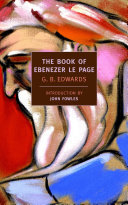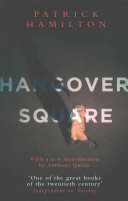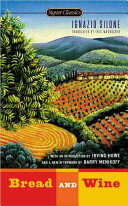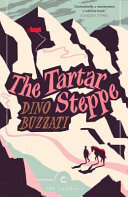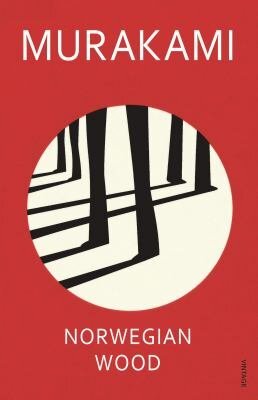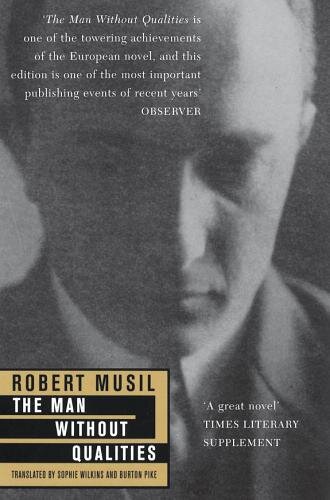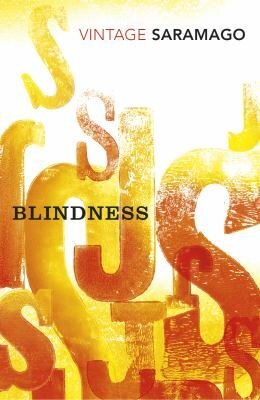-
Posts
468 -
Joined
-
Last visited
Content Type
Profiles
Forums
Events
Books
Everything posted by Hux
-

Your Book Activity - September 2022
Hux replied to lunababymoonchild's topic in Book Blogs - Discuss your reading!
Started reading White Noise by Don DeLillo. -
Satantango (1985) Laszlo Krasznahorkai This is a hard one to review. I loved the setting, this dreary, almost post-apocalyptic estate that could be either the 1970s or the 2090s. The narrator gives so little information yet conveys a sense of bleakness that is hard to ignore. Likewise, the characters have only the bare minimum personalities, yet they engage in such petty trivialities, like real people, that its hard not to picture them as clearly thought-out individuals. They stumble about this estate, seeking means of making their fortune, drinking in the pub, dreaming of a better life. Then along comes Irimias, a charismatic swindler who has a knack for telling people what they want to hear. He returns to the estate just as a young girl has accidently poisoned herself (the best chapter) and uses this tragedy to manipulate the many docile inhabitants. He cons them into giving it all up and moving to a new estate, one equally as decrepit and abandoned as their own. There's so much to love about this book and I totally understand its reputation. But the truth is I found the walls of text (no paragraph breaks) and the meandering sentences (often providing information that is evidently of little consequence) just became somewhat oppressive for me. I just didn't enjoy reading the thing and felt like I was forcing myself to get through it. This is all the more annoying when you know what you're reading is indeed excellent. You can patently see the artistry in his craft, the imagination in his words, the cleverness in his prose. But I just struggled to get lost in any of it (with a handful of exceptions) and found it hard to enjoy. The ending, similarly, has another twist which, in other circumstances, I might have loved, but by that point in proceedings I was just happy to have reached the end. I can recognise the brilliance of this work whilst simultaneously acknowledging that it was a bit of a slog to read. As such, it's hard to adequately asses or fully critique the book, but I would ultimately recommend it. 6/10
-
This was an exquisite piece of work. A proper good-old yarn. It felt so real that about halfway through I googled G.B. Edwards to see if this was literally just his life. But no, he left Guernsey, lived in London, had a very different existence. Ebenezer feels too real to be fictional though; too cantankerous and funny and opinionated. Most novels are narrated by personality-lacking robots who gaze into the middle distance and say nothing remotely human. Yawn. This was sweeping and epic and full of life. A real life. I so desperately wanted him to get together with Liza Quéripel but it just doesn't happen. Because that's just not how life works. I felt for him when his best friend Jim died in the First World war. When Tabitha lost her husband. When Raymond lost his faith. When the sisters Prissy and Hettie fell out and made up again and again. When Neville Falla vandalised his property. When he killed a Nazi. When he befriended another. And when he told us about the book he was writing. This book was an absolute joy. And to learn it was yet another book which publishers rejected reminds me how incompetent most publishers are. "The older I get and the more I learn, the more I know I don't know nothing, me."
-
Ebenezer Le Page, cantankerous, opinionated, and charming, is one of the most compelling literary creations of the late twentieth century. Eighty years old, Ebenezer has lived his whole life on the Channel Island of Guernsey, a stony speck of a place caught between the coasts of England and France yet a world apart from either. Ebenezer himself is fiercely independent, but as he reaches the end of his life he is determined to tell his own story and the stories of those he has known. He writes of family secrets and feuds, unforgettable friendships and friendships betrayed, love glimpsed and lost. The Book of Ebenezer Le Page is a beautifully detailed chronicle of a life, but it is equally an oblique reckoning with the traumas of the twentieth century, as Ebenezer recalls both the men lost to the Great War and the German Occupation of Guernsey during World War II, and looks with despair at the encroachments of commerce and tourism on his beloved island. G. B. Edwards labored in obscurity all his life and completed The Book of Ebenezer Le Page shortly before his death. Published posthumously, the book is a triumph of the storyteller’s art that conjures up the extraordinary voice of a living man. "Imagine a weekend spent in deep conversation with a superb old man, a crusty, intelligent, passionate and individualistic character at the peak of his powers as a raconteur, and you will have a very good ideas of the impact of The Book of Ebenezer Le Page...It amuses, it entertains, it moves us...” –The Washington Post "A true epic, as sexy as it is hilarious, it seems drenched with the harsh tidal beauties of its setting...For every person nearing retirement, every latent writer who hopes to leave his island and find the literary mainland, its author–quiet, self-sufficient, tidy Homeric–remains a patron saint." –Allan Gurganus, O Magazine
-
This was great. There's a modern term that's used to describe men who pander and flatter women in the hopes that they'll be rewarded with love, sex, attention. Simp! And this book is about the king of the Simps -- George Harvey Bone. He is in love with the beautiful Netta and hangs around with her and her set, drinking at all hours and avoiding employment of any kind. He confesses his love for her but she continues to use him for his money and, later, for his connections. One of her hangers-on is Peter, a spiv character who is just as keen to take advantage of George as she is. I honestly found myself despising Netta quite viscerally but also George too, his unwillingness to grown a spine despite being treated like a doormat something that infuriated me. The book reminded of the Tunnel by Sabato but whereas the paranoia of that book's male protagonist could be interpreted as self-inflicted, there is no ambiguity about George's feeling of humiliation and poor treatment. Netta is, quite explicitly, a bitch. She has a past working as an actress and has aspirations to get back into that world but otherwise she is, like the men she consorts with, a self-interested alcoholic. And George is nothing more than a means to an end for her. And here's where things get complicated because George, also a big drinker, suffers from a unique mental illness. I would describe it as a dissociative personality disorder but it's all a little vague. Essentially, it involves George going into a kind of dream state where an alternative version of himself is in control of his thoughts and actions. When George clicks in and out of these personalities, he remembers very little of what has happened. The whole thing is very effectively done by Hamilton and you get the impression that George is just one person but has two states of being. The book also takes place just as the 2nd World War is about to begin and I found it fascinating seeing these young people presented in a manner that was very familiar to me. When I think of that period, I think of straight-laced individuals wearing starched clothing and doing their bit for the war effort. But obviously, young people were just the same as they've always been; keen to get drunk, have fun, and avoid work. That the book was published in 1941 at the height of the war is also interesting as Hamilton essentially takes it for granted that fascism will lose. This was a great book. And very uniquely British.
-
The seventy-fifth anniversary edition, with a new introduction by Anthony Quinn. London, 1939, and in the grimy publands of Earls Court, George Harvey Bone is pursuing a helpless infatuation. Netta is cool, contemptuous and hopelessly desirable to George. George is adrift in a drunken hell, except in his 'dead' moments, when something goes click in his head and he realises, without a doubt, that he must kill her. In the darkly comic Hangover Square Patrick Hamilton brilliantly evokes a seedy, fog-bound world of saloon bars, lodging houses and boozing philosophers, immortalising the slang and conversational tone of a whole generation and capturing the premonitions of doom that pervaded London life in the months before the war.
-
Isn't that just the autofill? I find it quite convenient (when it works).
-

Your Book Activity - August 2022
Hux replied to lunababymoonchild's topic in Book Blogs - Discuss your reading!
Started Satantango by László Krasznahorkai -
An exiled socialist named Pietro Spina returns to fascist Italy and, with the authorities on his trail, and with the help of some old friends, masquerades as a priest named Don Paolo hiding out in the small mountain village of Pietrasecca. Here, he intends to recuperate from illness and keep a low profile, but he becomes the favourite of many of the villagers, especially his landlady, and is expected to perform the role of priest more thoroughly than he imagined. He meets and develops feelings for the a young girl named Cristina. All while remaining active in the socialist movement and maintaining connections with those in Rome who know his true identity. He uses his time to find meaning in his beliefs, both political and spiritual. I really enjoyed this. It's nothing groundbreaking or original, just an exceptionally well-written novel that is thoroughly engrossing. The language is straight-forward with short breezy chapters, though Silone uses occasional metaphors and aphorisms (especially of a religious nature) throughout the book as well as the rich language of Catholicism. The descriptions of the Italian countryside are wonderful, both constructive for the reader and pleasantly pastoral; this applies to the people as well, not to mention the (many) donkeys that transit them. The books themes are very heavily anti-fascist which also includes a strong condemnation of Stalin's brand of communism. Pietro struggles with the idea that too many people simply conform to the mainstream interpretation of their tribe's ideology without critical thinking -- something he is unwilling to do. If we aren't willing to criticise the party then we're no better than the fascists. Similarly, he struggles with his atheism, this now more prominent since he is masquerading as a priest and having to become a spiritual guide for many of the villagers. Fortunately, he has the help of the real priest Don Benedetto to rely on (someone who knows his true identity). And then, of course, there's the issue of sexuality which, in my opinion, is slightly confused in the conduct of Pietro, almost as if his clothing and pretence of being a celibate priest is influencing his biological state. Early in the book, for example, when he is hiding out in a barn, he encounters a frisky young woman who agrees to meet him later for sex. But when they meet, they mutually agree not to pursue any physical intercourse, as though this is the beginning of some kind of hitherto unrequired purity. His romantic feelings for Cristina, however, seem almost saintly by comparison (as do hers). My only criticism of the book would be the the slight over romanticisation of the peasants. Pietro, like Silone, is yet another educated middle-class socialist trying to liberate the poor (while they're busy working for a living). It's all a little simplistic. That being said, Silone acknowledges this himself a couple of times, noting that "socialism is for the well fed." Otherwise, the book is hugely entertaining and lacks any of the cynicism (or nihilism) which I usually enjoy. A very engaging novel.
-
-
Bread and Wine (1936) Ignazio Silone An exiled socialist named Pietro Spina returns to fascist Italy and, with the authorities on his trail, and with the help of some old friends, masquerades as a priest named Don Paolo hiding out in the small mountain village of Pietrasecca. Here, he intends to recuperate from illness and keep a low profile, but he becomes the favourite of many of the villagers, especially his landlady, and is expected to perform the role of priest more thoroughly than he imagined. He meets and develops feelings for the a young girl named Cristina. All while remaining active in the socialist movement and maintaining connections with those in Rome who know his true identity. He uses his time to find meaning in his beliefs, both political and spiritual. I really enjoyed this. It's nothing groundbreaking or original, just an exceptionally well-written novel that is thoroughly engrossing. The language is straight-forward with short breezy chapters, though Silone uses occasional metaphors and aphorisms (especially of a religious nature) throughout the book as well as the rich language of Catholicism. The descriptions of the Italian countryside are wonderful, both constructive for the reader and pleasantly pastoral; this applies to the people as well, not to mention the (many) donkeys that transit them. The books themes are very heavily anti-fascist which also includes a strong condemnation of Stalin's brand of communism. Pietro struggles with the idea that too many people simply conform to the mainstream interpretation of their tribe's ideology without critical thinking -- something he is unwilling to do. If we aren't willing to criticise the party then we're no better than the fascists. Similarly, he struggles with his atheism, this now more prominent since he is masquerading as a priest and having to become a spiritual guide for many of the villagers. Fortunately, he has the help of the real priest Don Benedetto to rely on (someone who knows his true identity). And then, of course, there's the issue of sexuality which, in my opinion, is slightly confused in the conduct of Pietro, almost as if his clothing and pretence of being a celibate priest is influencing his biological state. Early in the book, for example, when he is hiding out in a barn, he encounters a frisky young woman who agrees to meet him later for sex. But when they meet, they mutually agree not to pursue any physical intercourse, as though this is the beginning of some kind of hitherto unrequired purity. His romantic feelings for Cristina, however, seem almost saintly by comparison (as do hers). My only criticism of the book would be the the slight over romanticisation of the peasants. Pietro, like Silone, is yet another educated middle-class socialist trying to liberate the poor (while they're busy working for a living). It's all a little simplistic. That being said, Silone acknowledges this himself a couple of times, noting that "socialism is for the well fed." Otherwise, the book is hugely entertaining and lacks any of the cynicism (or nihilism) which I usually enjoy. A very engaging novel. 8/10
-
A young soldier (Drogo) rides towards a remote fort in a desert where he is to be stationed. There, by the Tartar Steppe, the soldiers are tasked with watching for any potential movements of the mysterious northern army. Once there, he wants to leave but agrees to do his four month stint. Various circumstances dictate that he ultimately stays for two years. He makes friends, he rises up the ranks, he does his duty. Occasionally, there's excitement at the prospect that the northern armies might be mobilising. But it usually turns out to be an illusion. He is young, he has the best days of his life ahead of him. A further four years go by. Drogo has been promoted, he continues to do his duty. One day, a soldier sees movement among the desert and the potential for glory appears to be on the same horizon. But again, it's a false alarm. And Drogo and his comrades go back to their marching, their routine, their daily activities. He is still young, he still has the best days of his life ahead of him. Fifteen more years go by. Drogo is now second in command. He is a middle aged man, watching new, younger men, arrive to do their duty. He has never married, has no children, has accomplished little in his career, but he continues to hope, continues to believe that his life has meaning. But he is no longer young. Drogo is now in his late-fifties, closing in on retirement. He is struck by an illness and becomes withered and guant. Just then, the Northern armies do indeed appear to be on the march towards the fort. But Simeoni (the leader) says that he is too ill to fight and so must return to the city to recuperate. Just as his purpose to life arrives, he is taken away in a carriage, has it snatched away, and dies pointlessly in an inn. The end. The book is a curious (kafkaesque) look at the repetitive nature of existence, at the wasted years we throw away on working in jobs we hate, at the wasted youth we cannot hold onto, at the desperate search we have for a purpose, a meaning. To find something that will distract us from the ticking of the clock. But in truth, no matter what we do, we waste our lives. Because what purpose is there? Marriage? Children? Being a success? All things designated by others as symbols of a successful life. But what difference does it really make? This was a truly fascinating book. It wasn't necessarily the most enjoyable read and the prose never fully gripped me. But the ideas explored, specifically the ambiguous (Buzzati never tells us how to feel) notion of a what a worthwhile life is, are enormously powerful.
-
Idealistic young officer Giovanni Drogo is full of determination to serve his country well. But when he arrives at a bleak border station in the Tartar desert, where he is to take a short assignment at Fort Bastiani, he finds the castle manned by veteran soldiers who have grown old without seeing a trace of the enemy. As his length of service stretches from months into years, he continues to wait patiently for the enemy to advance across the desert, for one great and glorious battle . . . Written in 1938 as the world waited for war, and internationally acclaimed since its publication, The Tartar Steppe is a provocative and frightening tale of hope, longing and the terrible sorcery of dreams and desires.
-
An anti-social (and sexually impotent) man named Frederick Clegg who has no friends and collects butterflies becomes obsessed with an attractive young 20-year-old art student named Miranda. He has fantasies about kidnapping her, making her fall in love with him. One day, he wins the pools and suddenly has the money to make his fantasies come to life. Step by step he finds himself buying a van, a house in the countryside where he can keep her, but all the while he doesn't really believe it will ever come to anything beyond meaningless fantasies. Then, as if on auto-pilot, he actually does it. Miranda is kept in a basement where Fred takes care of her every need, buying her nice clothes, perfumes, her favourite food, whatever she wants. He provides her with records, books, and the materials she needs for her art (including a drawing pad). At first she is understandably belligerent, refusing to speak, refusing to eat. Then she adapts her technique to better her chances of escape, almost befriending him, wanting to get to know him. Finally, she succumbs to the inevitable and offers herself to him sexually, only to find that he is appalled by this. Nothing she does seems to get through to him. The book reminded me a lot of The Tunnel by Ernesto Sabato. But while that book only gives us the man's perspective, this one gives us both. Part one is narrated by Fred, we see things from his point of view, see Miranda as he does, a kind of precious item placed on a pedestal. But then, in part two, we are given access to the diary Miranda has been writing during her captivity, and we not only get her perspective but we suddenly get a human being, one that is complex and flawed; she is no longer just that beautiful creature he is obsessed with but a person, with thoughts, ideas, and loves of her own (including an older man she is seemingly in love with referred to as G.P throughout the novel). Fowles isn't even afraid of making her a little unlikeable, because, in truth, all fully formed human beings are. The point is, she is more than just the idealised fantasy that Fred wants her to be. Given that this was published in 1963, I was amazed at how modern it feels. Fred is very much what we would call an incel today, low on confidence, self-pitying, while Miranda is opinionated, sure of herself, intellectually dominant. It was such a fantastic book to read, so easy to get lost in the stark prose, so nuanced in its portrayal of a madman and his victim who refuses to be a victim. And the ending has a sting.
-
-
This was one of the most wonderful reading experiences I've ever had. The book is no classic but it's wonderfully written and profoundly engaging. I honestly couldn't put it down. The story is fairly straight-forward and involves a man named Toru Watanabe reminiscing about his youth in the late 60s. After his best friend, Kizuki, commits suicide he becomes closer with Kizuki's girlfriend Naoko. They eventually have sex and Watanabe goes to university. Here he meets several characters, most notably Nagasawa and his girlfriend Hatsumi. Watanabe and Nagasawa begin going out drinking and meeting girls for sex. Watanabe then discovers that Naoko is in a sanitorium and struggling with her mental health. He writes to her, eventually visits, and they rekindle their romance. Naoko lives at the sanitorium with an older woman called Reiko (she tells a rather interesting tale about why she's also at the sanitorium which includes a story about teaching a 13-year-old girl to play the piano). The Japanese really do have a way when it comes to writing erotica, don't they? That being said, it felt like there was a little too much sex being used as an alternative to other, more conventional expressions of affection. Maybe that's a Japanese thing. I don't know. Everyone seems to need emotional reassurance but only expresses it through sex. Then again, it was set in the late 60s so maybe that's why. The casual use of sex aside, my only criticism would be the chapter where Murakami jumps ahead and tells us about the future of one of the characters. This felt out of place since the whole narrative takes place chronologically. Only at the very beginning of chapter one does he write from the perspective of being an older man in the late 1980s. Then we dive into the story when he's 18 and stay with that story. But suddenly, halfway through the book, he informs us of a character's fate and it felt a little jarring. I'm reliably informed that this is Murakami's most conventional novel. I'm not sure if I'd like his other works as much but based on this, I will definitely seek out more of his work. I honestly can't remember enjoying reading a book this much.
-
When he hears her favourite Beatles song, Toru Watanabe recalls his first love Naoko, the girlfriend of his best friend Kizuki. Immediately he is transported back almost twenty years to his student days in Tokyo, adrift in a world of uneasy friendships, casual sex, passion, loss and desire - to a time when an impetuous young woman called Midori marches into his life and he has to choose between the future and the past.
-
The year is 1913. A celebration is planned for the 70th jubilee of emperor Franz Joseph's reign in the upcoming year of 1918; a committee is brought together to come up with a theme for this celebration and noted thinkers, politicians, and artists are invited to the meetings held at the house of Ermelinda Tuzzi, better known as Diotima. Her cousin is Ulrich, a 32-year-old mathematician who is also invited. Ulrich is the man without qualities. Where to begin with this book? Firstly, it's huge, at over a 1000 pages long in three volumes, and is quite daunting as a result of that; but the writing is Proustian in its exquisiteness. Every single chapter is like a work of art in its own right with magnificent prose, lyrical fluidity, and beautiful metaphors. That being said there are chapters that probably don't need to exist, where details are provided in sumptuous language for something that quite frankly doesn't add anything to the story. And that brings me to my second point: there is no story here. Hence why I loved it so much. Despite its 19th century style of flowing language, this book is very much considered a modern novel, this most prominently seen in its utter lack of a plot. The details I gave above essentially cover everything, several characters discussing a theme for the celebration and thus, discussing art, politics, morality, progress, philosophy, meaning, you name it. The book is a satire on western European civilisation and its inability to capture purpose without endless contradiction. The book revels in the big ideas of existence, society, and progress. It delves into philosophical discussion on virtually every page and has characters embodying these debates and questions. Yet the most opinionated character of all is the third person narrator, his thoughts and ideas being the most thoroughly explored and expressed (not sure I've encountered such an opinionated omniscient third person narrator in a book before). There's a host of characters that orbit Ulrich such as Count Leindsdorf, his childhood friend Walter and his wife Clarisse (who is in love with Ulrich). His mistress Bonadea, the Prussian business man Arnheim, his black servant Soliman, and the maid Rachel. Then there's the murderer Moosbrugger who serves as a kid of floating question throughout the book on human nature and morality . They all spiral around Ulrich and add to his search for meaning and understanding. Then, towards the very end of the book, Ulrich (and Musil) abandons all of them entirely and spends several chapters focusing exclusively on Ulrich's sister Agathe, a woman with whom he has a quasi incestuous relationship (Musil is very deliberately vague on this yet equally quite clear). She is a stand-out character but only emerges at the very end of the book as a kind of other half for Ulrich, a Siamese twin as they describe it. This book contains some of the most astonishingly wonderful writing I've come across but I wouldn't recommend it lightly. It's far too long and many chapters, while being beautifully written, offer little in terms of the themes being explored. For that reason, it's a 9 rather than a 10.
-
-
A man is stuck in traffic and suddenly goes blind (a milky white blindness as opposed to darkness). A good Samaritan takes him home only to later steal his car. The next day he sees the doctor who is baffled. The day after that, the doctor discovers that he is now blind. And on it goes, with more an more people discovering that they are blind until the government starts rounding them up and placing them in an asylum. To begin with there are forty to fifty but gradually the numbers drastically increase. The doctor's wife also claims to be blind to stay with her husband despite this not being true. The army are positioned outside with strict instructions to shoot anyone who tries to leave. Soon the place is overpopulated with excrement everywhere and dead bodies. Then a group in a separate wing decides to keep all the food for themselves and demand money and jewels for food. Soon, they switch and demand that females from each ward be sent as payment. Eventually, the army abandon post as the blindness epidemic continues and the small group leaves and roams the apocalyptic streets in search of food and shelter. The allegory here is fairly obvious, concerning the true nature of humanity and how civilisation has a tendency to ignore what's in front of their eyes. But I found that fairly simplistic and predictable with little originality. Most of us know exactly what humanity is. Most of us keep that truth close to the front of our minds on a daily basis. There is nothing especially groundbreaking here and in truth the high praise this book receives is slightly bewildering to me. I get the impression that it's a lot of people who want to read Stephen King but also want to seem more intellectual (Saramago won a Nobel prize after all). That being said, I enjoyed the book and was swept along at a decent pace; the story is very engaging and though the writing style is often chaotic (very few full stops), it's actually quite an easy to read. My only criticisms would be the oppressively long chapters which, more than once, had me craving that they would end (never a good sign). And I also disliked the doctor and the girl with glasses having sex; it seemed absurd and pointless, and strangely presumptuous of a male writer. Overall, very good though.
-
A driver waiting at the traffic lights goes blind. An opthamologist tries to diagnose his distinctive white blindness, but is affected before he can read the text books. It becomes a contagion, spreading throughout the city. Trying to stem the epidemic the authorities herd the afflicted into a mental asylum where the wards are terrorised by blind thugs. And when fire destroys the asylum the inmates burst forth and the last links with a supposedly civilised society are snapped.
-
Adding new books is also strangely addictive. I suspect I'll stop bothering with a book blog now and just add books and reviews here.
-
Sometimes, it autofills with the correct cover. Other times, it doesn't, so I just use a picture from my laptop.
-

Your Book Activity - August 2022
Hux replied to lunababymoonchild's topic in Book Blogs - Discuss your reading!
Started reading Bread and Wine by Ignazio Silone


